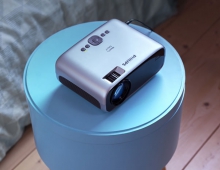
Philips signs five-year component deal with Dell
Koninklijke Philips Electronics NV signed a five-year deal worth up to US$5 billion to supply PC monitors and components to Dell Computer Corp., Philips said Wednesday. The Amsterdam-based electronics maker will supply Dell with CRT (cathode ray tube) and flat-panel monitors, as well as storage devices, connectivity products and other components. Dell, of Round Rock, Texas, will also sell a range of Philips-brand computer peripherals, along with related products, Philips said in a statement.
In return, Dell, the world's largest PC maker, has been named Philips' preferred supplier of servers, workstations, PCs and data storage products, Philips said.
The five-year agreement could be worth up to $5 billion based upon 25 percent year-over-year growth, Philips said. No other financial details of the deal were disclosed.
Philips will not be the exclusive provider of hardware components to Dell and the 25 percent year-on-year growth is realistic, said Jerele Neeld, a Dell spokesman.
"It is not an exclusive relationship, but Philips will obviously be a very important supplier to us. This deal will increase their share of our business," he said, adding that Philips was already a supplier to Dell and that the change in the size of the relationship prompted Wednesday's announcement.
Dell last year bought about $25 billion worth of components, according to Neeld.
Philips and Dell, in addition to their product relationship, also plan to work together on technology planning and marketing as well as optical storage standards, in which Philips is a worldwide leader. Expansion of the alliance is possible, Philips said.
"Together, we will look at what customers will want to buy over time," Neeld explained.
The alliance could give Dell the competitive edge it needs to keep prices down and continue to aggressively compete in the PC market, said Brian Gammage, principal analyst at Dataquest Inc., a unit of Gartner Inc.
"The PC price war has moved from driving prices down to curtailing price increases. The deal should give Dell some opportunity to seek the best prices on flat-panel screens. If Dell is able to curtail cost increases it will need to pass less of an increase on to users," said Gammage.
Dell's Neeld agreed.
"Part of our model is to be low cost and part of that is to strike good deals with our suppliers. These kind of relationships allow us to be the low cost provider, which is what our customers want," he said.
There is upward pressure on PC prices as component prices rise. The cost of a 15-inch flat-panel display has gone up about $60 in recent months and will likely rise by another 10 percent, according to Gammage. Component price increases recently moved Apple Computer Inc. to add $100 to the price of its new iMac.
"Dell is going to have to push its PC prices up. The less they do that, the more they will be able to maintain the competitive pressure on the opposition and now Dell has some possibility of offsetting some of the cost increases through this alliance," said Gammage.
The five-year agreement could be worth up to $5 billion based upon 25 percent year-over-year growth, Philips said. No other financial details of the deal were disclosed.
Philips will not be the exclusive provider of hardware components to Dell and the 25 percent year-on-year growth is realistic, said Jerele Neeld, a Dell spokesman.
"It is not an exclusive relationship, but Philips will obviously be a very important supplier to us. This deal will increase their share of our business," he said, adding that Philips was already a supplier to Dell and that the change in the size of the relationship prompted Wednesday's announcement.
Dell last year bought about $25 billion worth of components, according to Neeld.
Philips and Dell, in addition to their product relationship, also plan to work together on technology planning and marketing as well as optical storage standards, in which Philips is a worldwide leader. Expansion of the alliance is possible, Philips said.
"Together, we will look at what customers will want to buy over time," Neeld explained.
The alliance could give Dell the competitive edge it needs to keep prices down and continue to aggressively compete in the PC market, said Brian Gammage, principal analyst at Dataquest Inc., a unit of Gartner Inc.
"The PC price war has moved from driving prices down to curtailing price increases. The deal should give Dell some opportunity to seek the best prices on flat-panel screens. If Dell is able to curtail cost increases it will need to pass less of an increase on to users," said Gammage.
Dell's Neeld agreed.
"Part of our model is to be low cost and part of that is to strike good deals with our suppliers. These kind of relationships allow us to be the low cost provider, which is what our customers want," he said.
There is upward pressure on PC prices as component prices rise. The cost of a 15-inch flat-panel display has gone up about $60 in recent months and will likely rise by another 10 percent, according to Gammage. Component price increases recently moved Apple Computer Inc. to add $100 to the price of its new iMac.
"Dell is going to have to push its PC prices up. The less they do that, the more they will be able to maintain the competitive pressure on the opposition and now Dell has some possibility of offsetting some of the cost increases through this alliance," said Gammage.


















